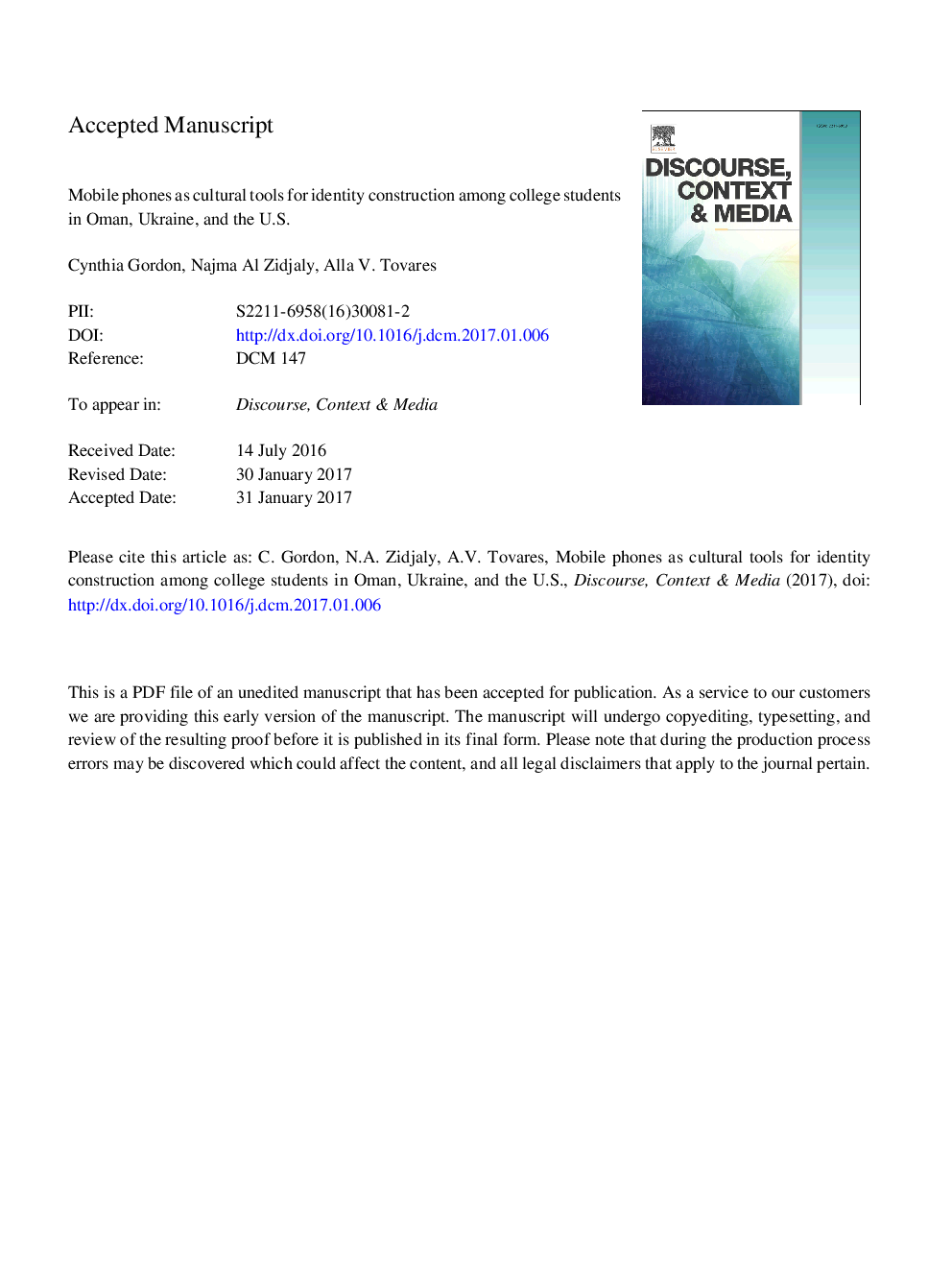ترجمه فارسی عنوان مقاله
تلفن های همراه به عنوان ابزار فرهنگی برای ساخت هویت در میان دانش آموزان کالج در عمان، اوکراین و ایالات متحده
عنوان انگلیسی
Mobile phones as cultural tools for identity construction among college students in Oman, Ukraine, and the U.S.
| کد مقاله | سال انتشار | تعداد صفحات مقاله انگلیسی |
|---|---|---|
| 130922 | 2017 | 47 صفحه PDF |
منبع

Publisher : Elsevier - Science Direct (الزویر - ساینس دایرکت)
Journal : Discourse, Context & Media, Volume 17, June 2017, Pages 9-19
ترجمه کلمات کلیدی
تلفن های همراه، ابزارهای فرهنگی، هویت، شیوه های جنسیتی، شیوه های فرهنگی،
کلمات کلیدی انگلیسی
Mobile phones; Cultural tools; Identity; Gendered practices; Cultural practices;

